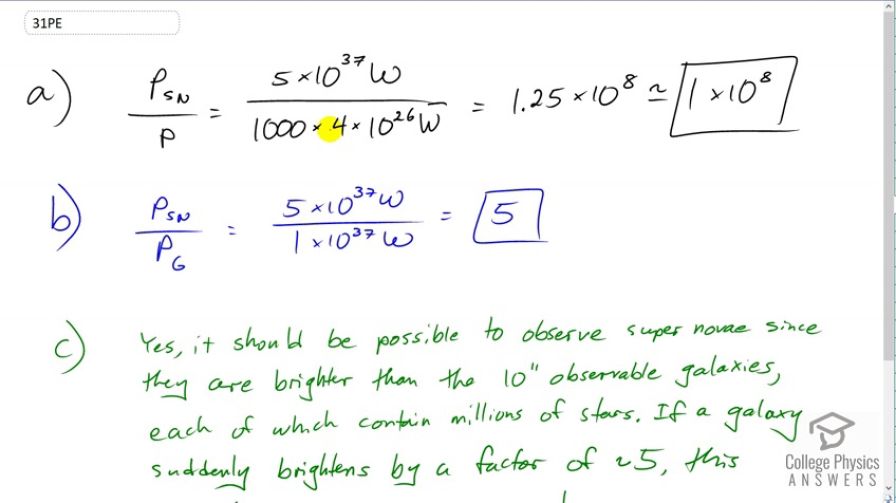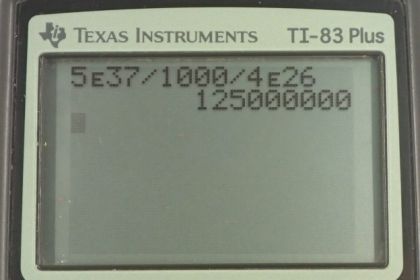Question
Suppose a star 1000 times brighter than our Sun (that is, emitting 1000 times the power) suddenly goes supernova. Using data from Table 7.3: (a) By what factor does its power output increase? (b) How many times brighter than our entire Milky Way galaxy is the supernova? (c) Based on your answers, discuss whether it should be possible to observe supernovas in distant galaxies. Note that there are on the order of observable galaxies, the average brightness of which is somewhat less than our own galaxy.
Final Answer
a)
b) 5
c) Yes, it should be possible to observe super novae since they are brighter than the 10^{11} observable galaxies, each of which contain millions of stars. If a galaxy suddenly brightens by a factor of ~5, this indicates a super nova occurred.
Solution video
OpenStax College Physics for AP® Courses, Chapter 7, Problem 31 (Problems & Exercises)

vote with a rating of
votes with an average rating of
.
Calculator Screenshots
Video Transcript
This is College Physics Answers with Shaun Dychko. The power output of a supernova divided by the power output of this star which is one thousand times brighter than our sun, would be five times ten to the thirty-seven watts,power output of a supernova, divided by 1000 times four times ten to the twenty-six watts which is the power output of our sun. This is about one times ten to the eight and so the power output of supernova is greater than the power output of a star by a factor of one times ten to the eight. Comparing the supernova power output to the power output of all the stars in you know, a typical galaxy would be five times ten to the thirty-seven watts divided by one times ten to the thirty-seven watts which is five. So given that the supernova is about five times as bright as a galaxy, we should be able to see supernovae especially since they are ten to the eleven observable galaxies that's many, many galaxies each of which contain millions of stars and so chances are at some point one of those stars within one of those many galaxies is going to explode in a supernova. We would notice that if the galaxy suddenly brightens by a factor of about five which is what we expect to happen when a supernova occurs.
